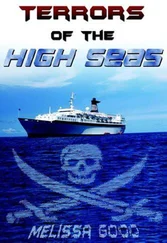The disturbing element in this gay and peaceful picture, in which the only note of rivalry was sounded by competitions in skill in the realms of sport, was the news of the murder of the Austrian heir, the Archduke Franz Ferdinand. The Kaiser left Kiel the very next day and travelled to Berlin. The English ships departed on June 29, their light cruisers using the Kaiser Wilhelm Canal. They thus had an opportunity of making a close acquaintance with the new waterway which had only been completed a few weeks before. Whether it could be also used by our heavy ships was one of their questions which must be laid to the account of untimely curiosity The deepening and widening of the Canal and the construction of the new locks at the entrances had been completed only just in time. They had become necessary to permit the passage of the big ships, the building of which had been imposed upon us by the introduction of the "Dreadnought" type. The unsuitability of this highway for battle-cruisers like the Blücher and the battleships of the "Nassau " class had been a matter of much concern to our naval High Command since 1909, on account of the injurious effect on the strategic situation. It also involved laying an unnecessary burden on our main base in the North Sea, which could not keep pace with the growing number of ships assigned to it.
About a week later the Kaiser returned to Kiel, and on July 5 started out for his usual cruise to Norway. As the situation could by no means be considered reassuring, exhaustive conferences were held between the Naval authorities in Berlin and the Fleet to discuss the various contingencies of war. As subsequent events showed, the most noteworthy of these was the hypothesis that England would remain neutral in the collision with Russia, and most probably her Ally, France, with which we were threatened. It was on this account that the Fleet was allowed to leave for the summer cruise to Norway at the time provided for in the annual scheme.
This decision, as indeed that of the Kaiser, can only be attributed to carelessness or an intention to show no nervousness. That intention, in turn, can only have been due to a firm conviction of England's neutrality.
In the annual scheme the summer cruise represented the high watermark of the development attained. As a reward for the effort shown in daily work, the individual training of the ships and the handling of separate squadrons as well as the whole Fleet, it ended with a visit to foreign ports instead of a sojourn in our own harbours.
This excursion abroad not only served the purpose of keeping up interest in the work but also helped us to maintain our political prestige by showing the flag, especially when an impression of power was thereby created.
When a single gunboat turned up on a distant shore to show the German flag there, the foreigner at once professed to regard it as obvious that this ship was the emissary of the Imperial Government which, for the matter of that, had at home an imposing Fleet and a great Army to secure our position in Europe. A corresponding display of power on the spot was far more convincing and at the same time revealed the capabilities of our shipbuilding industry and refuted the widespread legend that England alone had the best and largest ships.
In view of the uncertain political situation since the summer of 1909 we had discontinued the practice of sending the whole Fleet, or substantial parts of it, to great distances such as the Mediterranean, to Spanish or Portuguese harbours, Cape Verde and the Azores. Thus for our purpose the principal country for us to visit was Norway, in the numerous fjords of whose coast it was possible to distribute the ships to the satisfaction of all concerned and avoid overwhelming the inhabitants with a mass of sailors on leave. The distribution also made a greater variety of excursions available to the men, as each ship had its particular place of call.
There had only been one break - in the summer of 1912 - in our annual visit to the Norwegian coast since 1910. In this year, 1914, the general political situation required that the visit of the Kaiser and the Fleet should have its usual objective. A cruise to the coasts of the eastern Baltic, even a hasty call at our harbours in that region, does not appear to have been in keeping with the policy we were pursuing at this critical moment.
With the cruise to Norway we abandoned the chance of sending our Fleet east and thus bringing pressure to bear on Russia to induce her to stop her preparations for war. The use of the floating army, which requires no special mobilisation, is ideal for such a purpose. In that case Danzig Bay would have offered us a firstclass base, as the larger units could have deployed from there with extreme ease in contrast to the difficult exits from the estuaries of the North Sea rivers - the Elbe, Weser, Jade and Ems, while the light forces attached to the Fleet would have found a fortified base in the harbour of Neufahrwasser.
How Norway could have been chosen for the goal of our cruise in the situation at that moment seems incredible and gives one the impression that we deliberately intended to shut our eyes to the danger. The chance of appearing with a strong naval force, first as a demonstration and later in dead earnest, in our eastern waters was from the start not given the consideration its importance merited.
On July 14 Squadron II, of which I had assumed command at the beginning of February in the previous year, in succession to Vice-Admiral von Ingenahl, who had been appointed Commander-in-Chief of the Fleet, left Kiel Bay to rendezvous off Skagen with the ships coming from Wilhelmshaven and then carry out extensive fleet exercises which were principally concerned with the solution of tactical problems. Through the addition of a third squadron to the High Sea Fleet these exercises were of particular importance for this cruise, as this newly-formed third squadron had as yet had no chance of taking part in combined exercises.
The practical application of theoretical tactics to the circumstances arising out of battle is inexhaustible and provides fresh material from year to year.
The new squadron required training in that respect. In war games, indeed, very useful preliminary work can be done in this department" but that tactical insight which knows how to exploit a favourable situation is itself first trained on the open sea and in the last resort it is the sum of the impressions received which first enables the commander to come to the right decision in the time available, which is often only a matter of seconds. For such decisions there are no rules, however valuable certain tactical principles may be, which have been sanctified by experience.
In the era of sailing ships it was a simple matter, owing to the slow deployment for battle and the small range of the guns. But to-day it is altogether different, in view of the great speed of the ships and the huge range of the guns. The first shells usually arrive the moment the enemy is seen, and we have known cases in which the impact of the enemy's projectiles is the first notification of his being in the vicinity, and he has not become visible until some time afterwards.
With regard to England, we were faced with a particularly difficult, indeed almost insoluble problem. We had to deal with our enemy in such a way as to give greater effect to our smaller calibre guns at short range and be able to use a torpedo wherever possible. From the English we had to expect that in view of the greater speed possessed by their ships of every type and their heavier artillery, they would select the range that suited them and fight a "holding-off" action. That, indeed, is exactly what happened in the war. The necessity of practical training in this department illustrates the importance of the addition of a third squadron.
Читать дальше












